 W
WSimple living encompasses a number of different voluntary practices to simplify one's lifestyle. These may include, for example, reducing one's possessions, generally referred to as minimalism, or increasing self-sufficiency. Simple living may be characterized by individuals being satisfied with what they have rather than want. Although asceticism generally promotes living simply and refraining from luxury and indulgence, not all proponents of simple living are ascetics. Simple living is distinct from those living in forced poverty, as it is a voluntary lifestyle choice.
 W
WThe Amish are a group of traditionalist Christian church fellowships with Swiss German and Alsatian Anabaptist origins. They are closely related to Mennonite churches. The Amish are known for simple living, plain dress, Christian pacifism, and slowness to adopt many conveniences of modern technology, with a view to not interrupt family time, nor replace face-to-face conversations whenever possible.
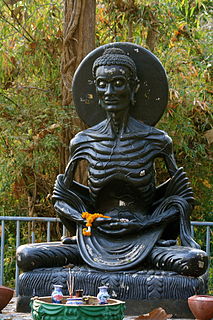 W
WAsceticism is a lifestyle characterized by abstinence from sensual pleasures, often for the purpose of pursuing spiritual goals. Ascetics may withdraw from the world for their practices or continue to be part of their society, but typically adopt a frugal lifestyle, characterised by the renunciation of material possessions and physical pleasures, and also spend time fasting while concentrating on the practice of religion or reflection upon spiritual matters. Various individuals have also attempted an ascetic lifestyle to free themselves from addictions, some of them particular to modern life, such as alcohol, tobacco, drugs, entertainment, sex, food, etc.
 W
WBack to nature or return to nature is a philosophy or style of living which emphasises closeness to nature, rather than artifice and civilisation. In this, the rustic customs and pastoralism of country life are preferred to urban fashion and sophistication. A famous example is Henry David Thoreau who spent two years living a simple life in a log cabin at Walden Pond.
 W
WIn trade, barter is a system of exchange in which participants in a transaction directly exchange goods or services for other goods or services without using a medium of exchange, such as money. Economists distinguish barter from gift economies in many ways; barter, for example, features immediate reciprocal exchange, not one delayed in time. Barter usually takes place on a bilateral basis, but may be multilateral. In most developed countries, barter usually exists parallel to monetary systems only to a very limited extent. Market actors use barter as a replacement for money as the method of exchange in times of monetary crisis, such as when currency becomes unstable or simply unavailable for conducting commerce.
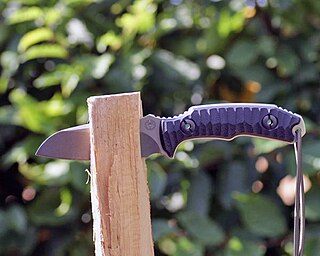 W
WBatoning is the technique of cutting or splitting wood by using a baton-sized stick or mallet to repeatedly strike the spine of a sturdy knife, chisel or blade in order to drive it through wood, similar to how a froe is used. The batoning method can be used to make kindling or desired forms such as boards, slats or notches. The practice is most useful for obtaining dry wood from the inside of logs for the purpose of fire making.
 W
WCapsule wardrobe is a term used in American publications as early as the 1940s to denote a small collection of garments designed to be worn together which harmonized in color and line. The term capsule wardrobe was revived by Susie Faux, the owner of a London boutique called "Wardrobe" in the 1970s. According to Faux, a capsule wardrobe is a collection of a few essential items of clothing that do not go out of fashion, such as skirts, trousers, and coats, which can then be augmented with seasonal pieces. This idea was popularised by American designer Donna Karan, who, in 1985, released an influential capsule collection of seven interchangeable work-wear pieces.
 W
WThe Chariton Collector was a local history and folklore magazine published biannually between 1980 and 1989 by students at Kirksville High School, Kirksville, Missouri. The magazine took its name from the Chariton River, which flows through northeast Missouri.
 W
WCommodity money is money whose value comes from a commodity of which it is made. Commodity money consists of objects having value or use in themselves as well as their value in buying goods. This is in contrast to representative money, which has little or no intrinsic value but represents something of value, and fiat money, which has value only because it has been established as money by government regulation.
 W
WCottagecore is an Internet fashion aesthetic, also described by some sources as a Generation Z subculture, that celebrates an idealised rural life and developed throughout the 2010s until being named on Tumblr in 2018. It values traditional skills and crafts such as foraging, baking, and pottery, and is related to similar nostalgic aesthetic movements such as grandmacore, farmcore, goblincore, and faeriecore. The ideas of cottagecore can help to satisfy for its proponents a desire for "an aspirational form of nostalgia" as well as an escape from many forms of stress and trauma. The New York Times described it as a reaction to hustle culture and the advent of personal branding.
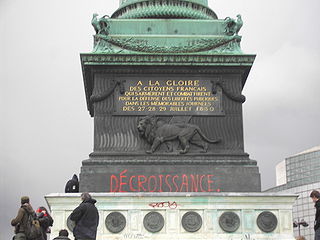 W
WDegrowth is a term used for both a political, economic, and social movement as well as a set of theories that critiques the paradigm of economic growth. It is based on ideas from a diverse range of lines of thought such as political ecology, ecological economics, feminist political ecology, and environmental justice. Degrowth emphasizes the need to reduce global consumption and production and advocates a socially just and ecologically sustainable society with well-being replacing GDP as the indicator of prosperity. Degrowth highlights the importance of autonomy, care work, self-organization, commons, community, localism, work sharing, happiness and conviviality.
 W
WDeep Green Resistance (DGR) is a radical environmental movement that views mainstream environmental activism as being ineffective. The group believes that industrial civilization, as they define it, is endangering the environment, and that it must be destroyed using a broad range of tactics including militancy.
 W
WDiogenes, also known as Diogenes the Cynic, was a Greek philosopher and one of the founders of Cynic philosophy. He was born in Sinope, an Ionian colony on the Black Sea coast of modern-day Turkey, in 412 or 404 BC and died at Corinth in 323 BC.
 W
WDIY ethic is the ethic of self-sufficiency through completing tasks without the aid of a paid expert. The "do it yourself" (DIY) ethic promotes the idea that anyone is capable of performing a variety of tasks rather than relying on paid specialists.
 W
WAn ecovillage is a traditional or intentional community with the goal of becoming more socially, culturally, economically, and/or ecologically sustainable. An ecovillage strives to produce the least possible negative impact on the natural environment through intentional physical design and resident behavior choices. It is consciously designed through locally owned, participatory processes to regenerate and restore its social and natural environments. Most range from a population of 50 to 250 individuals, although some are smaller, and traditional ecovillages are often much larger. Larger ecovillages often exist as networks of smaller sub-communities. Some ecovillages have grown through like-minded individuals, families, or other small groups—who are not members, at least at the outset—settling on the ecovillage's periphery and participating de facto in the community.
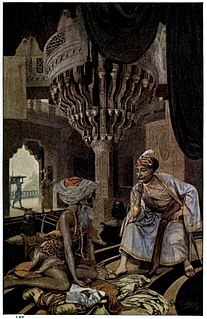 W
WA fakir, faqeer or faqir, derived from faqr is an Islamic term traditionally used for a Sufi Muslim whose contingency and utter dependence upon God is manifest in everything they do and every breath they take. They do not necessarily renounce all relationships and take a vow of poverty, some may be poor and some may even be wealthy, but the adornments of the temporal worldly life are kept in perspective and do not detract from their constant neediness of God. The connotations of poverty associated with the term relate to their spiritual neediness, not necessarily their physical neediness. The faqir seeks to attain the condition of the perfect slave of Allah, who "delivers his trust (existence) back to its Owner." They are said to be "faqir ila Allah" or impoverished in comparison to Allah, which is the most exalted state to attain.
 W
WA Foldscope is an optical microscope that can be assembled from simple components, including a sheet of paper and a lens. It was developed by Jim Cybulski and Manu Prakash and designed to cost less than US$1 to build. It is part of the "frugal science" movement which aims to make cheap and easy tools available for scientific use in the developing world.
 W
WFood rescue, also called food recovery or food salvage, is the practice of gleaning edible food that would otherwise go to waste from places such as restaurants, grocery stores, produce markets, or dining facilities and distributing it to local emergency food programs.
 W
WFrugality is the quality of being frugal, sparing, thrifty, prudent or economical in the consumption of consumable resources such as food, time or money, and avoiding waste, lavishness or extravagance.
 W
WGandhism is a body of ideas that describes the inspiration, vision, and the life work of Mohandas Gandhi. It is particularly associated with his contributions to the idea of nonviolent resistance, sometimes also called civil resistance. The two pillars of Gandhism are truth and nonviolence.
 W
WA gift or a present is an item given to someone without the expectation of payment or anything in return. An item is not a gift if that item is already owned by the one to whom it is given. Although gift-giving might involve an expectation of reciprocity, a gift is meant to be free. In many countries, the act of mutually exchanging money, goods, etc. may sustain social relations and contribute to social cohesion. Economists have elaborated the economics of gift-giving into the notion of a gift economy. By extension the term gift can refer to any item or act of service that makes the other happier or less sad, especially as a favor, including forgiveness and kindness. Gifts are also first and foremost presented on occasions such as birthdays and holidays.
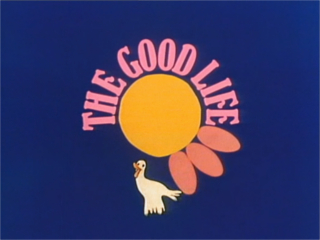 W
WThe Good Life is a British sitcom, produced by BBC television. It ran from 4 April 1975 to 10 June 1978 on BBC 1 and was written by Bob Larbey and John Esmonde. Opening with the midlife crisis of Tom Good, a 40-year-old plastics designer, it relates the joys and miseries he and his wife Barbara experience when they attempt to escape modern commercial living by "becoming totally self-sufficient" in their home in Surbiton. In 2004, it came 9th in Britain's Best Sitcom.
 W
WA haybox, straw box, fireless cooker, insulation cooker, wonder oven, self-cooking apparatus, norwegian cooker or retained-heat cooker is a cooker that utilizes the heat of the food being cooked to complete the cooking process. Food items to be cooked are heated to boiling point, and then insulated. Over a period of time, the food items cook by the heat captured in the insulated container. Generally, it takes three times the normal cooking time to cook food in a haybox.
 W
WHomesteading is a lifestyle of self-sufficiency. It is characterized by subsistence agriculture, home preservation of food, and may also involve the small scale production of textiles, clothing, and craftwork for household use or sale. Pursued in different ways around the world—and in different historical eras—homesteading is generally differentiated from rural villages or commune living by isolation of the homestead. Use of the term in the United States dates back to the Homestead Act (1862) and before. In sub-Saharan Africa, particularly in nations formerly controlled by the British Empire, a homestead is the household compound for a single extended family. In the UK, the terms smallholder and croft are rough synonyms of homesteader.
 W
WHousetruckers are individuals, families and groups who convert old trucks and school buses into mobile homes and live in them, preferring an unattached and transient lifestyle to more conventional housing. These vehicles began appearing around New Zealand during the mid-1970s and, even though there are fewer today, they continue to travel New Zealand roads.
 W
WKalani Oceanside Retreat, also known as Kalani Honua or Kalani, is a non-profit retreat center located on the Big Island of Hawai'i. It was established in 1975 and focuses on natural and holistic living, yoga and relaxation, and spiritual retreats. Kalani has historically been staffed by a core group of administrators, managers, and coordinators, plus volunteers from around the world.
 W
WLehman's Hardware is a retail store located in Kidron, Ohio. Originally specializing in products used by the Amish community, it has become known worldwide as a source for non-electric goods. The 35,000-square-foot (3,300 m2) facility bills itself as a "Low Tech Superstore" and a "Purveyor of Historical Technology," both of which are reflected in their motto, "Simple Products for a Simpler Life." The quarter-mile-long structure is made up of the remnants of a log cabin and three pre-Civil War buildings, including a hand-hewn barn. It is also a popular tourist destination. Lehman's also maintains a smaller, more traditional hardware store in Mount Hope, Ohio, where their Amish customers may shop with less interference from curious tourists. In addition to the two stores, there is also an outlet, catalog and online business.
 W
WLow technology is simple technology, opposed to high technology. They often refer to a traditional or non-mechanical kind, such as crafts and tools that pre-date the Industrial Revolution.
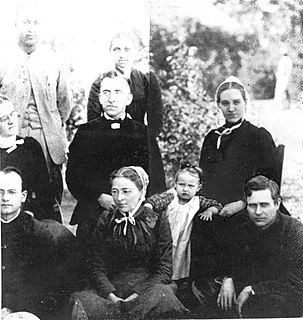 W
WThe Mennonites are members of certain Christian groups belonging to the church communities of Anabaptist denominations named after Menno Simons (1496–1561) of Friesland. Through his writings, Simons articulated and formalized the teachings of earlier Swiss founders, with the early teachings of the Mennonites founded on the belief in both the mission and ministry of Jesus, which the original Anabaptist followers held with great conviction, despite persecution by various Roman Catholic and Protestant states. An early set of Mennonite beliefs was codified in the Dordrecht Confession of Faith in 1632, but the various groups do not hold to a common confession or creed.
 W
WIn visual arts, music, and other media, minimalism is an art movement that began in post–World War II Western art, most strongly with American visual arts in the 1960s and early 1970s. Prominent artists associated with minimalism include Donald Judd, Agnes Martin, Dan Flavin, Carl Andre, Robert Morris, Anne Truitt, and Frank Stella. The movement is often interpreted as a reaction against abstract expressionism and modernism; it anticipated contemporary postminimal art practices, which extend or reflect on minimalism's original objectives.
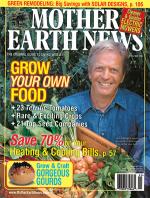 W
WMother Earth News is a bi-monthly American magazine that has a circulation of 500,520 as of 2011. It is published in Topeka, Kansas.
 W
WOne World Everybody Eats (OWEE) was a nonprofit community kitchen and is a foundation based in Salt Lake City, Utah. Its motto was "a hand up, not a hand out." The community kitchen concept is a restaurant based on a gift economy, allowing patrons to "pay what they can" and serving all members of the community regardless of their ability to pay. The Cafe incorporated volunteer and common-effort aspects similar to those of a community garden. The organization's stated goal was to provide all who eat high quality, all natural, simple food and to ask patrons to give fairly in exchange so that all could partake.
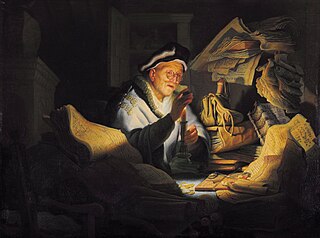 W
WThe Parable of the Rich Fool is a parable of Jesus which appears in Luke 12:16–21. It depicts the futility of the belief that wealth can secure prosperity or a good life.
 W
WPlain dress is a practice among some religious groups, primarily some Christian churches in which people dress in clothes of traditional modest design, sturdy fabric, and conservative cut. It is intended to show acceptance of traditional gender roles, modesty, and readiness to work and serve, and to preserve communal identity and separation from the immodest, ever-changing fashions of the world.
 W
WPlain people are Christian groups characterized by separation from the world and by simple living, including plain dressing in modest clothing. Many Plain people have an Anabaptist background. These denominations are largely of German, Swiss German, Dutch or other European ancestry. Conservative Friends are traditional Quakers who are also considered plain people; they come from a variety of different ethnic backgrounds.
 W
WThe Power of Half: One Family's Decision to Stop Taking and Start Giving Back is a book written by Kevin Salwen and his teenage daughter Hannah in 2010.
 W
WReal Goods Trading Corporation is a retail and wholesale e-commerce business located in Ukiah, California that sells renewable energy systems and resources for people interested in living off the grid or with a low environmental impact.
 W
WThe meaning of a spiritual retreat can be different for different religious communities. Spiritual retreats are an integral part of many Hindu, Buddhist, Christian and Sufi (Islamic) communities.
 W
WThe SAME Cafe is a nonprofit community cafe located at 2023 East Colfax Avenue, Denver, Colorado, United States. Brad and Libby Birky invested $30,000 to open the restaurant on October 20, 2006, inspired by their background in community service and a visit to the One World Cafe in Salt Lake City, Utah. The name is an acronym for "So All May Eat", and their motto is "Making healthy, organic food available to all". They offer higher quality food in a pay what you can format where the diner puts what they feel their meal was worth in a donation box. They also accept a 1/2 hour of volunteer help in exchange for a meal, made possible by Colorado laws which do not require a food handlers certificate for restaurant workers.
 W
WSeasonal food refers to the times of year when the harvest or the flavour of a given type food is at its peak. This is usually the time when the item is harvested, with some exceptions; an example being sweet potatoes which are best eaten quite a while after harvest. It also appeals to people who prefer a low carbon diet that reduces the greenhouse gas emissions resulting from food consumption. Macrobiotic diets emphasise eating locally grown foods that are in season.
 W
WThe United Society of Believers in Christ's Second Appearing, more commonly known as the Shakers, are a millenarian nontrinitarian restorationist Christian sect founded circa 1747 in England and then organized in the United States in the 1780s. They were initially known as "Shaking Quakers" because of their ecstatic behavior during worship services. Espousing egalitarian ideals, women took on spiritual leadership roles alongside men, including founding leaders such as Jane Wardley, Mother Ann Lee, and Mother Lucy Wright. The Shakers emigrated from England and settled in Revolutionary colonial America, with an initial settlement at Watervliet, New York, in 1774. They practice a celibate and communal lifestyle, pacifism, uniform charismatic worship, and their model of equality of the sexes, which they institutionalized in their society in the 1780s. They are also known for their simple living, architecture, technological innovation, and furniture.
 W
WSilent trade, also called silent barter, dumb barter, or depot trade, is a method by which traders who cannot speak each other's language can trade without talking. Group A would leave trade goods in a prominent position and signal, by gong, fire, or drum for example, that they had left goods. Group B would then arrive at the spot, examine the goods and deposit their trade goods or money that they wanted to exchange and withdraw. Group A would then return and either accept the trade by taking the goods from Group B or withdraw again leaving Group B to add to or change out items to create an equal value. The trade ends when Group A accepts Group B's offer and removes the offered goods leaving Group B to remove the original goods.
 W
WThe slow movement advocates a cultural shift toward slowing down life's pace. It began with Carlo Petrini's protest against the opening of a McDonald's restaurant in Piazza di Spagna, Rome in 1986 that sparked the creation of the slow food movement. Over time, this developed into a subculture in other areas, like the Cittaslow organisation for "slow cities." The "slow" epithet has subsequently been applied to a variety of activities and aspects of culture.
 W
WSmall Is Beautiful: A Study of Economics As If People Mattered is a collection of essays by German-born British economist E. F. Schumacher. The phrase "Small Is Beautiful" came from a principle espoused by Schumacher's teacher Leopold Kohr (1909–1994) The concept is often used to champion small, appropriate technologies or polities that are believed to empower people more, in contrast with phrases such as "bigger is better", or "small is beautiful, but small".
 W
WA starving artist is an artist who sacrifices material well-being in order to focus on their artwork. They typically live on minimum expenses, either for a lack of business or because all their disposable income goes toward art projects. Related terms include starving actor and starving musician.
 W
WSubsistence agriculture occurs when farmers grow food crops to meet the needs of themselves and their families on smallholdings. Subsistence agriculturalists target farm output for survival and for mostly local requirements, with little or no surplus. Planting decisions occur principally with an eye toward what the family will need during the coming year, and only secondarily toward market prices. Tony Waters writes: "Subsistence peasants are people who grow what they eat, build their own houses, and live without regularly making purchases in the marketplace."
 W
WThe National Sustainable Living Festival is an annual national festival held since 1998 in Melbourne at Federation Square and Birrarung Marr along the Yarra River.
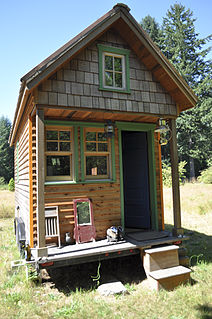 W
WThe tiny-house movement is an architectural and social movement that advocates living simply in small homes. There are different definitions of "tiny". The 2018 International Residential Code, Appendix Q Tiny Houses, defines a tiny house as a dwelling unit with a maximum of 37 square metres (400 sq ft) of floor area, excluding lofts. There are a variety of reasons for living in a tiny house. Many people who enter this lifestyle rethink what they value in life and decide to put more effort into strengthening their communities, healing the environment, spending time with their families, or saving money. Tiny homes can also provide affordable, transitional housing for those who have experienced a lack of shelter.
 W
WThe Tolstoyan movement is a social movement based on the philosophical and religious views of Russian novelist Leo Tolstoy (1828–1910). Tolstoy's views were formed by rigorous study of the ministry of Jesus, particularly the Sermon on the Mount.
 W
WTurtle Island is a book of poems and essays written by Gary Snyder and published by New Directions in 1974. Within it, Snyder expresses his vision for humans to live in harmony with the earth and all its creatures. The book was awarded the Pulitzer Prize for Poetry in 1975. "Turtle Island" is a name for the continent of North America used by many Native American tribes.
 W
WWorld Brotherhood Colonies are an idea for self-sustaining spiritual communities envisioned by Paramahansa Yogananda, the Indian yogi and author of Autobiography of a Yogi and founder of Self-Realization Fellowship / Yogoda Satsanga Society of India. Yogananda envisioned that communities for "plain living and high thinking," would develop as a natural culmination of the spread of his worldwide teachings. Yogananda established a World Brotherhood Colony at his Self-Realization Fellowship Encinitas center in Southern California and found that organizing spiritual communities for families along the lines he envisioned would take much more time than he then had available. Self-sustaining SRF communities for families will come into being in the future when the time is right. Yogananda abandoned his dream of founding a world-brotherhood colony in Encinitas and turned his mind to organizing the existing commununities along more strictly monastic lines.
 W
WWorld Wide Opportunities on Organic Farms, or Willing Workers on Organic Farms, is a loose network of national organizations that facilitate homestays on organic farms. As of June 2016, Australia with 2,600 hosts has the most host farms and enterprises, followed by New Zealand with 2,340 and United States with 2,052 hosts. The UK has 688 WWOOF hosts. While there are WWOOF hosts in 210 countries around the world, no central list or organization encompasses all WWOOF hosts. As there is no single international WWOOF membership, all recognised WWOOF country organizations strive to maintain similar standards, and work together to promote the aims of WWOOF.